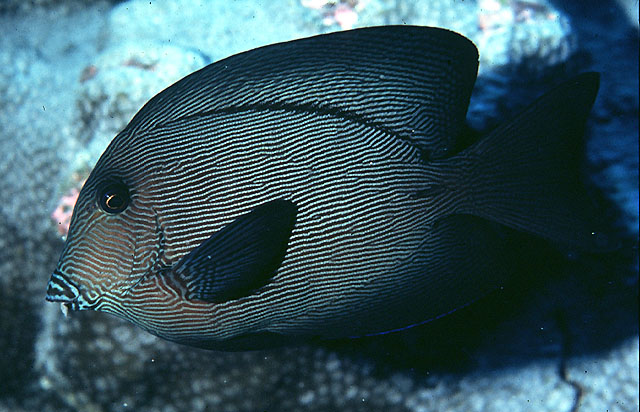| Acanthuridae (Surgeonfishes, tangs, unicornfishes), subfamily: Acanthurinae |
| 25 cm TL (male/unsexed) |
|
reef-associated; marine; depth range 0 - 61 m |
| Pacific Ocean: throughout most Oceania, from Micronesia, Wake and Marcus islands to the Hawaiian Islands and Pitcairn Island. |
|
Dorsal spines (total): 8-8; Dorsal soft rays (total): 27-29; Anal spines: 3-3; Anal soft rays: 25-26. Gill rakers on anterior row 21-25, on posterior row 25. Juveniles differ greatly from adults. They have deeper bodies and are bright orange-red with numerous dark chevrons. Adults appear uniformly black from a distance but actually have numerous dark green horizontal pinstripes. |
| An uncommon species that inhabits seaward rocky or coral reefs (Ref. 9710). Juveniles found in relatively deep coral rich areas (Ref. 42056). Benthopelagic (Ref. 58302). Feeds on film algae (Ref. 89972). Minimum depth reported taken from Ref. 128797. |
|
Least Concern (LC); Date assessed: 07 May 2010 Ref. (130435)
|
| harmless |
Source and more info: www.fishbase.org. For personal, classroom, and other internal use only. Not for publication.
